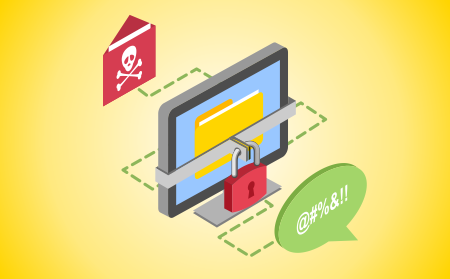The Best Way To Business Anti Spam
In this era of advancing technological innovations where the information system is at the center stage of businesses, many companies are still ruled by non-technology aware leaders. It is given, as businessmen running the show are there for profit, that maximizing corporate profit is the common battle cry. They see the cost of acquiring credible IT security and defense mechanisms as a non-earning asset and not as an investment to protect the business interest in the long run.
This is why IT teams need to be persuasive professionals in order to provide stronger inputs for most of the time, deaf non-tech savvy executives. Spending for IT security is an investment in the long run. The breach of security, as recent history has taught us is a catalyst for bankruptcy as the lifeblood of corporations today is not only trust but also a constant flow of relevant information vs the competitors. One order of business is IT teams need to focus on is the sending and receiving of timely information within the organization. Before the Internet went mainstream, these information exchanges focus heavily on people with a sole duty to deliver typewritten messages to and from different departments of an organization.

That is no longer the case in a 21st-century company, that system has been replaced by emails and other messaging platforms. In the area of anti spam, for example, executives are not giving it enough attention. For a company of a hundred employees, people are spending a lot of time manually deleting spam emails, the very moment they arrived in their office to start their workday. Business Anti Spam solution is seen as just a cost, spending corporate funds without any chance of earning profit out of it, that is how business leaders treat it.
Business anti spam is part of the IT Security infrastructure. It is an important cog in the series of wheels we know as the business. Executives and decision makers need to re-educate themselves, CTOs and CIOs need to blaze the trail. Purchasing of Business anti spam is a critical decision of any IT team, as it is very unproductive to use employee time to clear-out spam every day, at the start of the workday.
Business anti spam is part by default of any mainstream email clients like Microsoft Outlook and Mozilla Thunderbird. The anti spam technique used by business anti spam is through the use of a developer-supplied blacklist of the most common spam keywords. The sophistication of the business anti spam depends on the version of the email client. The newer the email client, the more effective the anti spam algorithm used. However, enterprises usually follow a strict software lifecycle in order to streamline the cost of upgrading software to the next version.
Taking into consideration this heavy hidden cost, many enterprises are learning their lesson the hard way. A business anti spam that is hardware appliance-based is more robust and does not place a computing burden on the mail server. Such business anti spam prevents delays from email sending and receiving, in contrast to a software-based business anti spam that runs on the mail server that interferes with the operation of the latter in real time.
One such business anti spam is launched by Comodo. A trusted name in privacy and security, Comodo Dome Anti Spam is a multi-tier system for fighting junk emails. Depending upon the requirement of the enterprise, Comodo Dome Anti Spam is a business anti spam solution which can be entirely cloud-based, hosted in the cloud, but connected to your mail server or a hardware appliance located in your own office network itself. Try it today!
START YOUR FREE TRIAL TODAY
